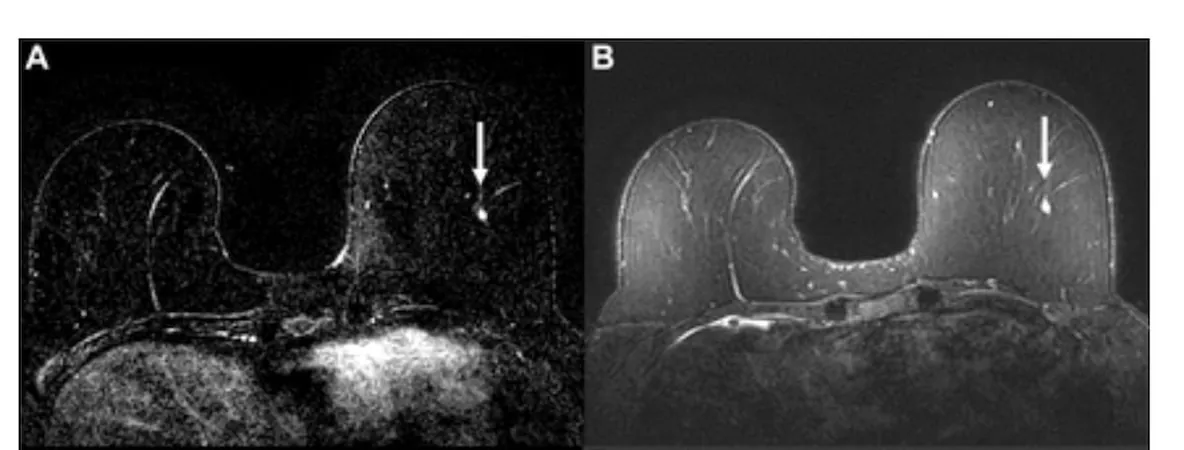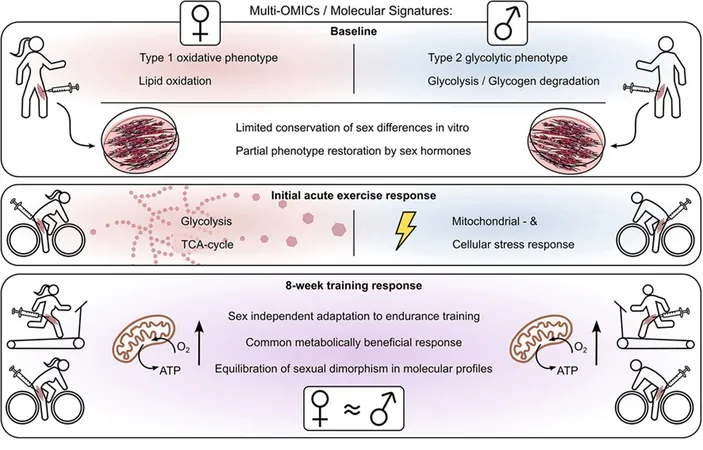
Revolutionary AI-Driven Breast MRI Could Transform Diagnostic Imaging
2025-06-03
Author: Yu
A Leap Forward in Medical Imaging
Groundbreaking research is shining a light on the transformative potential of artificial intelligence (AI) in breast MRI procedures. This promising study introduces a real-time AI tool designed to help doctors decide between full breast MRI scans and abbreviated versions, marking what could be a significant shift in diagnostic imaging.
Study Highlights: AI in Action
Recently published in the journal Radiology, the study involved a detailed simulation with 863 women, showcasing how AI can accurately determine the need for extended imaging. By assessing subtraction maximum intensity projection scans, the AI tool was able to generate a malignancy suspicion score—paving the way for more efficient decision-making.
The results were startling, revealing that the abbreviated MRI (AB-MRI) protocol maintained exceptional sensitivity rates (88.2% compared to 86.3% for the full MRI) and exhibited similar specificity (80.8% vs. 81.4%). But that’s not all: the positive predictive value for biopsies remained consistent, and the cancer detection rates were remarkably comparable.
Time is Money: The Efficiency Edge
Dr. Sarah Eskreis-Winkler and her team argued that leveraging AI could streamline MRI scan times by as much as 33%, especially if half of the patients transitioned to AB-MRI. This efficiency could slash medical costs, boost access for patients, elevate satisfaction, and improve image quality by minimizing motion blurs from restless patients.
Personalized Imaging: The Future of MRI
The findings suggest that we might be entering an exciting "new era" for AI-directed MRI scanning. Imagine a future where imaging sequences are tailored in real-time for each individual patient, enhancing the relevance and effectiveness of every test. AI could ideally create dynamic, personalized diagnostic pathways, eliminating unnecessary data collection, thus focusing directly on what each specific patient needs.
Key Insights to Remember
1. **Maintaining Accuracy**: AI could facilitate the triage of a significant number of breast MRI exams to abbreviated versions without compromising diagnostic accuracy.
2. **Increased Efficiency and Access**: Switching to abbreviated scans may lead to shorter procedures, reduced costs, and improved access to MRI testing for more patients.
3. **The Shift to Personalized Imaging**: The study underscores a growing trend toward adaptive imaging workflows, where real-time data collection becomes the norm and radiologists may shift to supervisory roles, presenting new ethical and professional challenges.
Looking Forward: What’s Next for AI in Radiology?
While the implications of this study are exciting, Dr. Fredrik Strand cautions against overlooking the potential challenges AI poses for radiologists. As AI systems become integral to imaging processes, questions arise about the future roles of these professionals and how they will adapt to a new landscape dominated by technology.
With further exploration needed, especially concerning real-time clinical applications, this study signals the dawn of an era where AI could reshape how we approach medical imaging—delivering more precise, patient-centric care.




 Brasil (PT)
Brasil (PT)
 Canada (EN)
Canada (EN)
 Chile (ES)
Chile (ES)
 Česko (CS)
Česko (CS)
 대한민국 (KO)
대한민국 (KO)
 España (ES)
España (ES)
 France (FR)
France (FR)
 Hong Kong (EN)
Hong Kong (EN)
 Italia (IT)
Italia (IT)
 日本 (JA)
日本 (JA)
 Magyarország (HU)
Magyarország (HU)
 Norge (NO)
Norge (NO)
 Polska (PL)
Polska (PL)
 Schweiz (DE)
Schweiz (DE)
 Singapore (EN)
Singapore (EN)
 Sverige (SV)
Sverige (SV)
 Suomi (FI)
Suomi (FI)
 Türkiye (TR)
Türkiye (TR)
 الإمارات العربية المتحدة (AR)
الإمارات العربية المتحدة (AR)